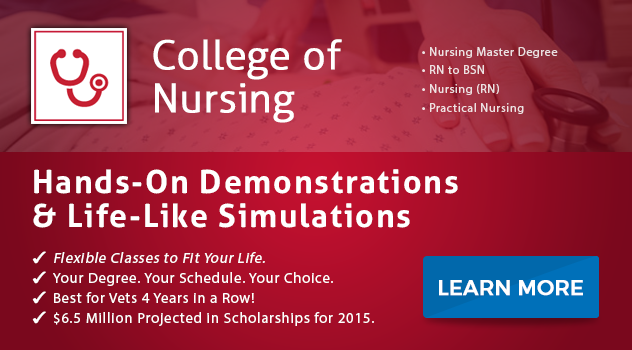
Completing your graduate degree in nursing is a great step toward preparing yourself for future career growth and job opportunities. The future is bright for master’s prepared nurses that span the breadth of jobs from direct clinical to non-direct patient care positions. If you are wanting to move forward with a graduate degree, what are career options for new MSN degree graduates?
Clinical Positions for MSN Graduates
If you are still wanting to maintain a high percentage of direct patient care in your next nursing position after graduation, several job opportunities may meet your needs.
Research Nurse
A research nurse generally works in an academic healthcare organization that employs physicians who provide both clinical research and academic work for the organization. An example of this is a cancer society or an organization associated with a major medical school. Research nurses support various clinical studies under the guidance of the primary physician investigator. Research nurses may perform direct patient care including patient recruitment, initial assessments, administration, and documentation of any medications or treatments, and follow-up care and assessment per the study protocol.
Nurse Clinician
Over the course of your career, you may have found you particularly enjoy a “niche” area of nursing such as cardiology, oncology, or diabetes. Nurse clinicians provide comprehensive nursing care in a specialty area of medical care. As a nurse clinician, you may coordinate nursing care across the continuum of care for your patients. Examples include coordinating care for patients’ pre- and post- orthopedic surgery or cancer treatment and therapies.
Nurse Educator/Instructor
Nurse Educators provide nursing knowledge and skill development in a variety of positions. If you want to teach, you may have various opportunities to share knowledge and assess learning.
- Patient Education – Some nurse educators are involved with disease-specific education such as congestive heart failure or diabetes, while some are involved with wellness classes, risk reduction, and disease prevention education classes through community outreach. Other nurse educators work directly with patients and families to teach disease-specific skills such as diabetes education including information about the disease, how to manage blood sugar and administer insulin, or other medications to maintain adequate blood sugar and healthy lifestyle.
- Clinical Education – You may choose to teach other nurses skills and knowledge. Nursing Instructors may work in healthcare organizations with nursing staff to teach new skills or recertify current skills, provide training for new products and services, and provide new nursing orientation classes. Other graduate prepared nurse educators and instructors may serve as clinical instructors for nursing schools, serving as class instructors and preceptors in the clinical setting.
Management/Operations Positions
Quality Improvement Specialist
Most healthcare organizations are now required to meet certain quality requirements such as national safety patient goals, among others. Other organizations have ongoing initiatives based on their niche healthcare delivery, such as neurology and cardiology. Graduate nursing programs targeting education and leadership may prepare you for quality improvement positions as course requirements can include coursework related to research and quality improvement including statistics, data management and collection, community health, healthcare policy, healthcare technologies, and other coursework that supports the role of quality improvement initiatives in a healthcare organization.
Nurse Manager
If you enjoy leading others, a nurse manager position may be a great fit for you. More and more healthcare organizations are requiring a minimum of an MSN focused on nursing leadership skills for their management positions. A nurse manager is responsible for not only staff-related management skills such as managing employee performance and scheduling, but also ensuring the staff adheres to all required healthcare and accreditation guidelines. A nurse manager is also responsible for managing the overall patient care experience on the nursing unit including quality or care concerns from patients and families.
Nurse Administrator
Nurse leadership positions are available across the continuum of care for patients. Organizations such as ambulatory health, skilled nursing facilities, rehabilitation hospitals, home care, and long-term care facilities utilize MSN nurses for leadership positions such as facility nursing directors and administrators. These high-level positions require nurses to understand all aspects of patient care, human resources management, government regulations, insurance reimbursement, payer information, and accreditation requirements.
Expand Your Opportunities with a Nursing Master’s Degree
If you’re ready to expand your career opportunities through a Master of Science in Nursing with either a concentration in Nursing Education or Nursing Leadership, contact ECPI University to find out more about how you could earn your MSN in 15 months! It could be the Best Decision You Ever Make!
Cute enough to stop your heart, skilled enough to restart it sandyyyy_cx #nursingstudents #ecpi… https://t.co/1cwAUHlSwU
— Amelia Elizabeth (@nrseamelia) July 21, 2015
DISCLAIMER – ECPI University makes no claim, warranty, or guarantee as to actual employability or earning potential to current, past or future students or graduates of any educational program we offer. The ECPI University website is published for informational purposes only. Every effort is made to ensure the accuracy of information contained on the ECPI.edu domain; however, no warranty of accuracy is made. No contractual rights, either expressed or implied, are created by its content.
Gainful Employment Information – Master of Science in Nursing
For more information about ECPI University or any of our programs click here: http://www.ecpi.edu/ or http://ow.ly/Ca1ya.


